Founder
Gregory Ryslik, PhD, FCAS, MAAA
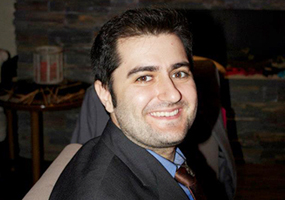 Greg graduated summa cum laude from Rutgers College and Rutgers Business School with a triple major in mathematics, computer science and finance. He then went on to complete a Masters degree in statistics from Columbia University as well as a PhD in biostatistics from Yale University.
Greg graduated summa cum laude from Rutgers College and Rutgers Business School with a triple major in mathematics, computer science and finance. He then went on to complete a Masters degree in statistics from Columbia University as well as a PhD in biostatistics from Yale University.
He has extensive experience as a teacher and a tutor, and has given talks in the United States and internationally. In the fall of 2011, Gregory was one of a select few to be chosen to participate in UCLA’s prestigious Institute for Pure and Applied Mathematics. In academia, he has helped students learn categorical data analysis, design & analysis of epidemiological models, longitudinal data analysis, introduction to statistics and calculus. He is currently an Adjunct Assistant Professor with the statistics department at the Pennsylvania State University.
During his career, he has co-founded several companies, published an actuarial textbook and has worked both on Wall Street and in Biotech. He has written several publicly available bioinformatics software packages and is an author of numerous scientific publications in journals such as Nature and BMC Bioinformatics.
His research has focused on big data, machine learning, genomics and protein structure. He has extensive experience with R, Python and C and his past work experience has also made him proficient in SAS, PHP, javascript, html, LaTex and java.
He currently lives in San Francisco, CA.
Core Team
David Koslicki, Professor, PhD
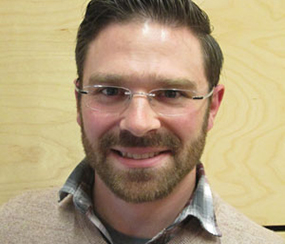 David graduated with a BS in mathematics and a 4.0 GPA after attending Washington State University for 2 years. He then obtained his PhD in mathematics from The Pennsylvania State University, and afterwards has held research positions at Drexel University and The Ohio State University. He is currently a tenure track faculty member at Oregon State University where he develops novel mathematical and computational approaches to a variety of big data problems in genomics and mathematical biology.
David graduated with a BS in mathematics and a 4.0 GPA after attending Washington State University for 2 years. He then obtained his PhD in mathematics from The Pennsylvania State University, and afterwards has held research positions at Drexel University and The Ohio State University. He is currently a tenure track faculty member at Oregon State University where he develops novel mathematical and computational approaches to a variety of big data problems in genomics and mathematical biology.
David is effective in bridging the gap between theory and application, while effectively communicating the results: he has given dozens of seminars in 5 different countries, assisted in organizing international conferences, and has been a visiting researcher at a variety of institutions such as Cambridge University, Göttingen University, and UCLA.
He has considerable experience with high performance computing (HPC) and frequently uses the following programming/scripting languages: Python, Mathematica, MATLAB/Octave, Julia, Bash/shell, PBS, and SGE.
Karen Lostritto, PhD
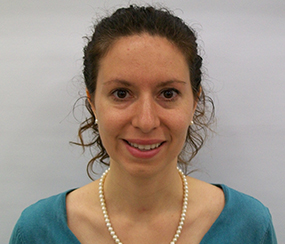 Karen is a quantitative analyst where she designs experiments, develops metrics, and conducts a variety of statistical analyses related to big data. Her educational background is originally in mathematics at Brown University where she graduated magna cum laude in 2006. During college, she also participated in the Budapest Semesters in Mathematics program during the spring of her junior year. She attended graduate school at Yale where she obtained a MS in 2009 and a PhD in 2011, both in bioinformatics.
Karen is a quantitative analyst where she designs experiments, develops metrics, and conducts a variety of statistical analyses related to big data. Her educational background is originally in mathematics at Brown University where she graduated magna cum laude in 2006. During college, she also participated in the Budapest Semesters in Mathematics program during the spring of her junior year. She attended graduate school at Yale where she obtained a MS in 2009 and a PhD in 2011, both in bioinformatics.
Her research focused on survival analysis, recursive partitioning methods, and decision trees with applications to both breast cancer and skin cancer. She is also experienced in linear models, categorical data, data mining and machine learning, statistical inference, multivariate statistics, and mixed effects model. She has also taught extensively helping students learn biostatistics, applied survival analysis, and design and analysis of epidemiological studies.
Not only an expert R coder, her programming expertise includes SAS, python, java, PHP, SQL, html and javascript. Using these skills, her postgraduate work has involved some of the biggest tech companies in Silicon Valley.
Owais Gilani, PhD
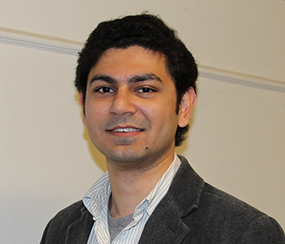 Owais received his PhD in Biostatistics from Yale University where his research focused on space-time modeling of environmental pollutants and their effects on human health. He graduated magna cum laude from Middlebury College in 2008, double majoring in Mathematics and International Studies, with a focus on Religion and the Middle East. He received an MS in Biostatistics in 2012 from Yale University. He currently is a postdoctoral research fellow at the University of Michigan at Ann Arbor.
Owais received his PhD in Biostatistics from Yale University where his research focused on space-time modeling of environmental pollutants and their effects on human health. He graduated magna cum laude from Middlebury College in 2008, double majoring in Mathematics and International Studies, with a focus on Religion and the Middle East. He received an MS in Biostatistics in 2012 from Yale University. He currently is a postdoctoral research fellow at the University of Michigan at Ann Arbor.
Apart from his research interest in developing new methodologies in spatial statistics, environmental epidemiology and mixed effects models, Owais is really passionate about teaching. During his graduate studies, he has taught and mentored graduate, undergraduate and high school students in a range of courses including applied regression analysis, GIS applications in epidemiology, spatial statistics, nonparametric statistical methods and introduction to programming in R and SAS. He has also presented at conferences and various panel discussions.
Owais has provided statistical and programming consulting services to a number of non-profit and research organizations, and has developed software applications related to text processing, data visualization and numerical solutions for complex problems. He has extensive experience working with R, SAS, ArcGIS and Python, and is also proficient in SPSS, MATLAB, Stata, Java and LaTeX.
Owais is a big fan of Arsenal Football Club, and always willing to discuss the team’s performance with anyone interested. He currently resides in New Haven, CT.
Xiangning Chu, PhD
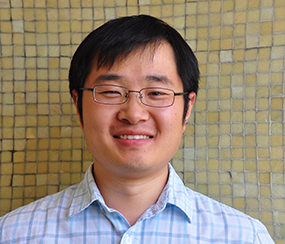 Xiangning Chu is a research scientist who received his Ph.D. in geophysics from UCLA in 2014 and a B.S. from Peking University with a double major in geophysics and economics. Xiangning’s interest and statistical expertise covers a broad spectrum of topics, from social justice to physics.
Xiangning Chu is a research scientist who received his Ph.D. in geophysics from UCLA in 2014 and a B.S. from Peking University with a double major in geophysics and economics. Xiangning’s interest and statistical expertise covers a broad spectrum of topics, from social justice to physics.
Xiangning has extensive scientific experience and his formative work has focused on utilizing multiple satellite signals in order to study the fluid environmental conditions of near-earth space, otherwise known as “space weather”. This work has led him to develop knew statistical inversion techniques that allows researchers to infer weather conditions over 40,000 KM away using state of the art magnetometers.
In addition to his scientific work, Xiangning has also worked on analyzing large-scale data using a variety of tools such as time-series analysis and machine learning. In particular, some of his most recent projects have involved using time-series modeling in order to predict geomagnetic activities from solar wind data. Xiangning is proficient in Python, MATLAB/Octave, Fortran, C/C++ and IDL.
In his spare time, Xianging is an amateur photographer and loves taking pictures with his Nikon D90. He currently resides in Los Angeles, CA.